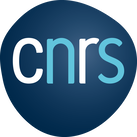CONFERENCE
Singularities
Singularités
25 – 29 September, 2023
Scientific Committee
Comité scientifique
Edward Bierstone (University of Toronto)
Eleonore Faber (Universtiy of Leeds)
Charles Favre (École polytechnique)
Ursula Ludwig (University of Münster)
Johannes Nicaise (Catholic University of Leuven)
Organizing Committee
Comité d’organisation
Jean-Baptiste Campesato (Université d’Angers)
Ursula Ludwig (University of Münster)
Guillaume Rond (Aix-Marseille Université)
Over the past few years, new methods have allowed singularists to achieve striking progress; among them we can cite the Floer homology, logarithmic geometry, the minimal model program, tropical geometry, perfectoid spaces. In the meantime new interactions have continued to emerge between singularity theory and other fields such as algebraic geometry, differential geometry, topology, dynamics, analysis and logic. Therefore singularity theory is currently a very active field which evolves very quickly and with fruitful achievements due to interactions between techniques from various horizons.
The conference will be centered on the following 3 courses:
(1) A course about new methods in complex geometry coming from o-minimal geometry.
(2) A course on the recent proof, by J. Fernandez de Bobadilla and T. Pełka, of Zariski’s conjecture for μ-constant families.
(3) A course on foliation theory
Besides, 9 talks will take place during the conference; they will be about recent results in singularity theory. In particular, they will focus on complex geometry, the minimal model program, singularities in positive characteristic, and on metrics in singular spaces. Some of these talks will be given by young researchers and will allow them to present their works. The main goals of this program are the following ones:
– Bringing new collaborations, but also perpetuating current ones, between researchers working on problems related to singularity theory; as well as promoting transversal exchanges between different fields (topology, algebraic geometry, analysis, commutative algebra. . . ).
– Introducing new results in singularity theory, but also new tools that could be useful for singularists.
– Supporting PhD students and young researchers working in singularity theory or related fields.
– Bringing new research projects and promoting new collaborations.
Depuis quelques années, l’introduction de techniques nouvelles, telles que l’homologie de Floer, la géométrie logarithmique, le programme du modèle minimal, la géométrie tropicale, les espaces perfectoïdes, a donné lieu à des avancées remarquables en théorie des singularités. En parallèle, ont continué à se développer les interactions entre la théorie des singularités et les domaines voisins que sont la géométrie algébrique, la géométrie différentielle, la topologie, la dynamique, l’analyse et la logique. Cela fait actuellement de la théorie des singularités un domaine très actif, avec beaucoup d’évolutions rapides, et des avancées fructeuses dues aux interactions entre différentes techniques.
La conférence va s’organiser autour de 3 cours :
(1) un cours sur le développement de méthodes issues de la géométrie o-minimale en géométrie complexe.
(2) un cours sur la démonstration récente de la conjecture de la multiplicité de Zariski pour une famille μ-constante, due à J. Fernandez de Bobadilla et T. Pełka.
(3) un cours sur la théorie des feuilletages.
En plus de ces cours, 9 exposés présenteront des résultats récents en théorie des singularités, en particulier en géométrie complexe, en lien avec le programme du modèle minimal, en caractéristique positive, et sur des questions métriques. Ce sera aussi l’occasion d’écouter de jeunes chercheurs présenter leurs travaux.
Les objectifs de ce programme sont les suivants :
– Promouvoir et développer les contacts entre chercheurs travaillant sur des
problèmes qui relèvent de la théorie des singularités, ainsi que d’encourager
les échanges transversaux aux différents domaines concernés (topologie,
géométrie algébrique, analyse, algèbre commutative. . . ).
– Présenter de nouveaux résultats et former les participants à de nouveaux
outils en théorie des singularités.
– Renforcer la fédération d’une communauté de chercheurs déjà structurée
autour du GDR « Singularités ».
– Participer à la formation des doctorants et jeunes chercheurs travaillant en
théorie des singularités ou dans des thèmes adjacents.
– Développer de nouveaux projets de recherche et encourager de nouvelles
collaborations.
COURSES
Gal Binyamini (Weizmann Institute of Science) Complex cellular structures
Tomasz Pełka (University of Warsaw) Symplectic monodromy at radius zero
Jorge Vitório Pereira (IMPA) Codimension one foliations on algebraic varieties
TALKS
Javier A. Carvajal Rojas (Catholic University of Leuven) On tame ramification and F-singularities
Roi Docampo (University of Oklahoma) Invariants of singularities and the geometry of arc spaces
Radu Laza (Stony Brook University) Higher rational and higher Du Bois singularities and applications
Yuchen Liu (Northwestern University) Normalized volume of singularities (online)
M’hammed Oudrane (Université de Nice) Sobolev sheaves on the definable topology
Irma Pallarés Torres (Catholic University of Leuven) On Hirzebruch classes for singular varieties
Anne Pichon (Aix-Marseille Université) Complete outer Lipschitz classification of complex surface singularities
Matteo Ruggiero (Université Paris Cité) Tangent to the identity germs and resolution of vector fields
Anna Valette (Jagiellonian University in Kraków) Approximations of globally subanalytic functions
Sasha Viktorova (Catholic University of Leuven) The defect of a cubic threefold






